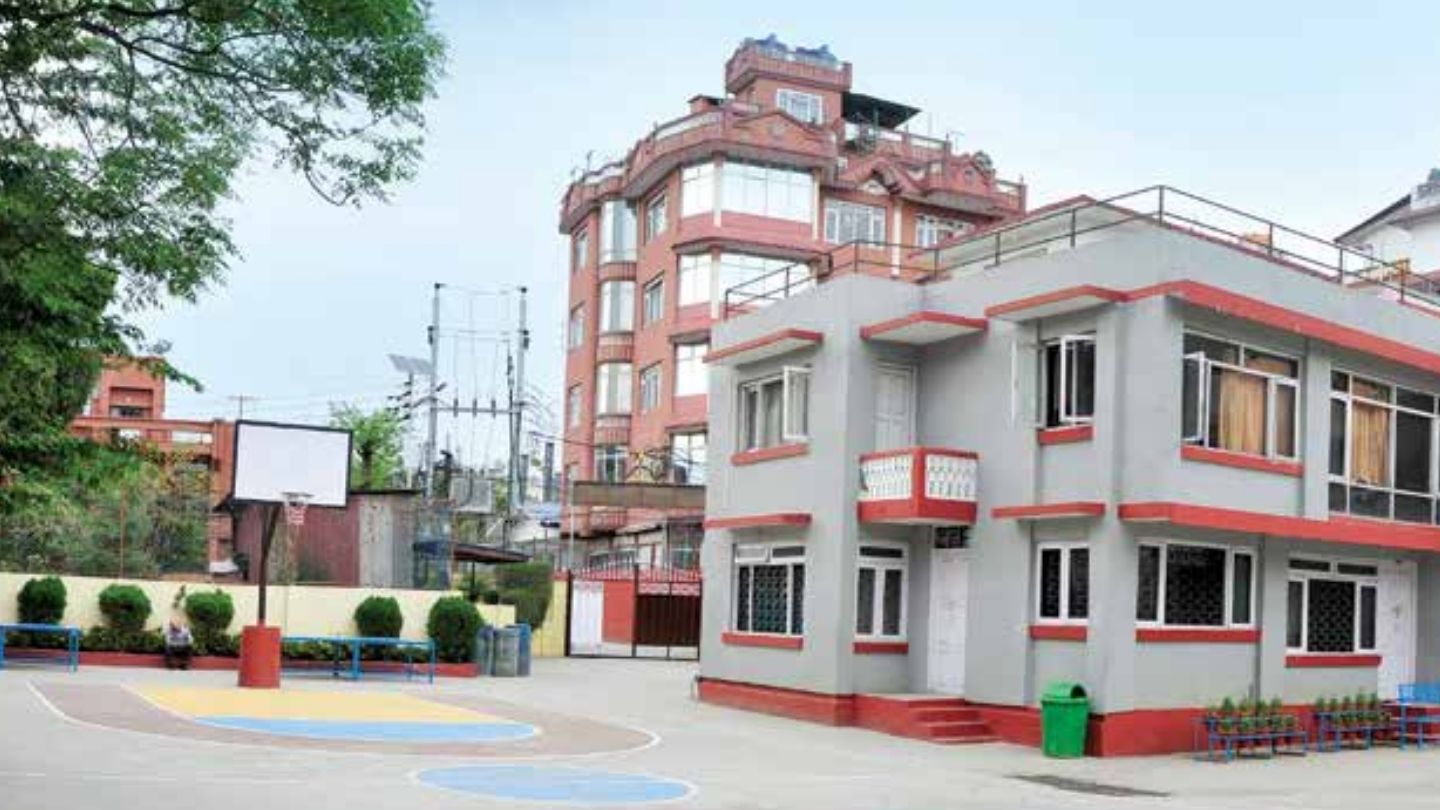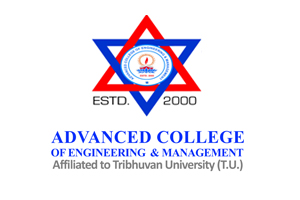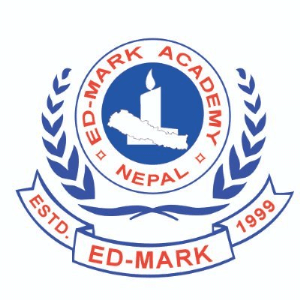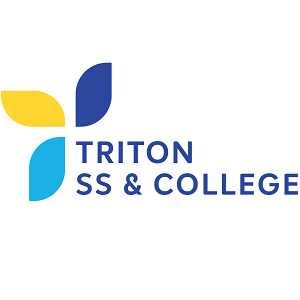Overview
Bachelor of Computer Application (BCA) at Trinity International College, Dillibazar
Bachelor of Computer Application (BCA) at Trinity International College, Dillibazar, Kathmandu, runs under Tribhuvan University’s Faculty of Humanities and Social Sciences.
The program spans eight semesters across four academic years, covers core computing, mathematics, communication, and social science, and ends with a major project and internship.
Students apply through the TU–FOHSS BCA entrance, then complete Trinity’s college-level steps for admission and semester registration.

Awarding Body: Tribhuvan University
College Delivery: Trinity International College, Dillibazar, Kathmandu
Program Length: Four years (eight semesters)
Admission Route: TU–FOHSS BCA entrance; college verification and placement
Highlights
-
Crediting System: Semester-based; end-semester exams conducted under TU; internal evaluation contributes to the final grade as per FOHSS BCA syllabus.
-
Capstone Work: Multi-stage projects (I–III) and a supervised internship in later semesters.
-
College Context: Trinity manages forms, document checks, interviews, supervision, and routine academic support from Dillibazar. (Trinity College)
Curriculum Details
Structure and Emphasis
BCA combines programming, systems, networks, databases, web technology, software engineering, and applied mathematics with English, management, and society-and-technology studies. The FOHSS syllabus specifies internal assessment plus end-semester examinations, practical components for lab-centric courses, and staged projects that build toward a final capstone.
Typical Thematic Areas
-
Programming & Software Construction: C, object-oriented programming in Java, scripting, .NET, mobile programming, and software engineering processes.
-
Systems & Networks: Operating systems, computer architecture, microprocessors, distributed systems, and network programming.
-
Data & Web: Database management systems, web technology, and related labs leading to data-driven applications.
-
Quantitative Foundations: Mathematics I–II, numerical methods, probability and statistics, operations research in the final year.
-
Professional Preparation: Business communication, management basics, cyber law and professional ethics, three-stage projects, and internship.
Projects and Internship
Project I and Project II grow skills in scoping, documentation, testing, and reflection. Project III and the internship in the final year document applied work with a written report, logs, and a presentation following FOHSS formats.
Assessment Pattern
FOHSS prescribes mixed evaluation: internal assessment and a written end-semester examination. Lab courses include practical assessment; project and internship evaluation involve written submissions and presentations under supervision.
Objectives
-
Academic Aim: Build a sound base in programming, systems, and application development suitable for Nepal’s IT services and software sector.
-
Practice Aim: Promote project discipline, documentation, and presentation habits that match TU formats.
-
Progression Aim: Prepare students for employment or for higher study in computing, information systems, or management informatics.
Scope
Graduates pursue roles in software development, web and mobile app development, database support, basic network administration, QA and testing, and junior systems analysis.
The record of projects and internship outputs supports early job applications and further study plans within or beyond TU.
Learning Outcomes
-
Write, test, and document programs using established paradigms and versioned submissions.
-
Model and query relational data; build small to mid-scale web systems with front–back integration.
-
Explain core operating-system and networking concepts; implement simple networked applications.
-
Apply discrete mathematics, probability, and numerical methods to computing problems.
-
Prepare technical reports, follow ethical practice, and present results within time limits.
Skill Development Modules
-
Programming Foundations: C, Java, scripting, .NET; structured labs and timed evaluations.
-
Systems Knowledge: Operating systems, microprocessors, architecture, and distributed concepts.
-
Data Skills: Database design, SQL, basic optimization, and application integration.
-
Web & Mobile: Web technology stacks and mobile programming with project links.
-
Quantitative & Research: Mathematics I–II, statistics, numerical methods, operations research; project methods and reporting.
Teaching Methodology (Trinity Perspective)
Trinity schedules lectures, labs, tutorials, and project supervision to align with FOHSS requirements.
Faculty guide topic selection, proposal drafting, coding reviews, test planning, and report formatting.
Semester routines include internal tests and progress reviews before TU end-semester exams. (Trinity College)
Admission Requirements
-
Eligibility: Applicants need at least D+ in each subject with minimum CGPA 2.0, or 45% in +2/equivalent; FOHSS entrance is mandatory. Trinity’s page lists the current intake criteria used for college processing. (Trinity College)
-
Entrance Form: TU–FOHSS BCA entrance application is made via authorized channels; forms are also facilitated at colleges that run BCA. Submit documents within the published window. (Trinity College)
-
Placement: Admission at Trinity follows entrance merit, document verification, and available seats. (Trinity College)
Career Opportunities
Students move into software trainee roles, junior developer posts, web and mobile development teams, support positions in databases and networks, and QA/testing assignments.
Graduates may apply for master’s programs in computing or management domains according to each program’s entry rules.
Scholarships and Financial Aid
-
Entry-Based: Trinity publishes GPA-based categories (e.g., Excellence, Merit) for bachelor entries, updated each intake.
-
Progress-Based: Fee-waiver provisions may apply for strong semester results per published notices.
-
Process: Read the latest scholarship notice during application to confirm tiers, seat limits, and renewal rules. (Trinity College)
Why Choose This Course?
BCA at Trinity offers a FOHSS-approved pathway that values practical programming, systems literacy, and staged projects with supervision on campus.
Semester pacing, internal checks, and end-semester exams help you plan steady progress from Dillibazar.
Conclusion
BCA at Trinity International College follows the FOHSS curriculum across eight semesters, balancing core computing with quantitative skills and applied work.
Students document learning through three projects and an internship, while faculty ensure that submissions follow TU formats and deadlines.
Applicants should track TU–FOHSS entrance dates and Trinity’s intake schedule, then organize documents early to avoid missing cutoffs.
FAQ
Is BCA a four-year program under TU?
Yes. FOHSS runs BCA across eight semesters in four academic years.
How are students evaluated?
FOHSS uses internal assessment with a written end-semester exam for most courses; lab courses include practical checks.
Does Trinity handle project supervision?
Yes. Trinity supervises projects and internship work on campus while following FOHSS formats. (Trinity College)
What is the basic eligibility listed by Trinity?
At least D+ in each subject with minimum CGPA 2.0 or 45% in +2/equivalent, plus the TU–FOHSS entrance. (Trinity College)
Where do I confirm live dates and forms?
Check FOHSS/TU notices and Trinity’s BCA page for the current session.






















